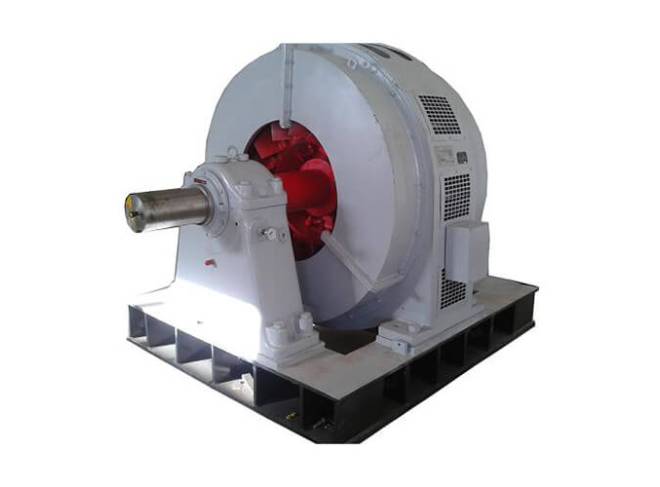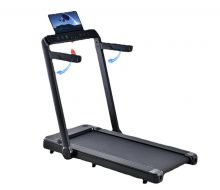Synchronous and Asynchronous Motors-Where Are They Used?
Many people are often confused about the term "synchronous and Asynchronous Motors" and their exact purpose. The following information describes the overall working methods of synchronous and asynchronous motors, their advantages, their common locations, and the goals that each motor can achieve.Get a quote.

Synchronous Motor
Synchronous and asynchronous motors-how they work
Synchronous motor
This is a typical Ac Synchronous Motor, capable of generating synchronous speed. In these motors, both the stator and the rotor rotate at the same speed, thus achieving synchronization. The basic working principle is that when a motor is connected to a power source, current flows into the stator windings, which generates a rotating electromagnetic field. This is again induced into the windings in the rotor, and then starts to rotate.
An external DC power supply is required to lock the direction and position of the rotor to the direction and position of the stator. Because of this interlock, the motors must run synchronously or not run at all.
Induction motor
The working principle of an asynchronous motor is almost the same as that of a synchronous motor, except that the asynchronous motor is not connected to an external exciter. In short, asynchronous motors (also called induction motors) also operate on the principle of electromagnetic induction. In this case, the rotor does not receive any electrical energy through conduction like a DC motor.
The only problem is that there is no external device connected to the induction motor to cut off the rotor, so the rotor speed depends on the varying magnetic induction intensity. This changing electromagnetic field causes the rotor to rotate slower than the stator's magnetic field. Because the speed of the rotor and the speed of the stator's magnetic field change, these motors are called asynchronous motors. The difference in speed is called slip.
Synchronous and asynchronous motors-advantages and disadvantages
The synchronous motor runs at a given frequency and a constant speed, independent of the load. However, the speed of an asynchronous motor will decrease as the load increases.
Synchronous motors can run with larger power factors, including lag and lead, while asynchronous motors always run with lag p.f. When the load is reduced, the lag p.f may be very low.
Synchronous motors are not self-starting, because asynchronous motors can be self-starting.
Like an asynchronous motor, the torque of a synchronous motor is not affected by voltage changes.
To start a synchronous motor, an external DC excitation is required, but an asynchronous motor can run without any external excitation.
Synchronous motors are generally more expensive and complicated than asynchronous motors, while asynchronous motors are cheaper and user-friendly.
Synchronous motors are particularly suitable for low-speed drives because their power factor can always be adjusted to 1.0 and their efficiency is high. On the other hand, asynchronous motors are useful for speeds above 600 RPM.
Unlike asynchronous motors, synchronous motors can run at ultra-low speeds by using high-power electronic converters that generate very low frequencies. They can be used to drive crushers, rotary kilns and variable speed ball mills.

Application of synchronous motor
They are usually used in power stations to obtain the proper power factor. They work in parallel with the bus and are usually over-excited externally to achieve the required power factor.
They are also used in the manufacturing industry, where a large number of asynchronous motors and transformers are used to overcome the problem of power factor lag.
Used in power stations to generate electricity at the required frequency.
Used to control the voltage by changing the excitation in the transmission line.
Application of asynchronous motor
More than 90% of the motors in the world are asynchronous motors, and asynchronous motors have been widely used in various fields. Some of them are:
Centrifugal fans, blowers and pumps
compressor
conveyor
Lifts and heavy cranes
lathe
Petroleum, textile and paper mills
In conclusion
In short, use Synchronous Motors only when the machine requires low-speed or ultra-low-speed performance and the required power factor exists. Asynchronous motors are mainly used in most rotating or moving machines, such as fans, elevators, grinders, etc.
Related Products
Slip ring motors
Large Synchronous Motors
Three phase asynchronous motor
High efficiency permanent magnet motor
This news above is from the official website of CML, if you want to know more you can click here.
Unlike asynchronous motors, synchronous motors can run at ultra-low speeds by using high-power electronic converters that generate very low frequencies. They can be used to drive crushers, rotary kilns and variable speed ball mills.

Application of synchronous motor
They are usually used in power stations to obtain the proper power factor. They work in parallel with the bus and are usually over-excited externally to achieve the required power factor.
They are also used in the manufacturing industry, where a large number of asynchronous motors and transformers are used to overcome the problem of power factor lag.
Used in power stations to generate electricity at the required frequency.
Used to control the voltage by changing the excitation in the transmission line.
Application of asynchronous motor
More than 90% of the motors in the world are asynchronous motors, and asynchronous motors have been widely used in various fields. Some of them are:
Centrifugal fans, blowers and pumps
compressor
conveyor
Lifts and heavy cranes
lathe
Petroleum, textile and paper mills
In conclusion
In short, use Synchronous Motors only when the machine requires low-speed or ultra-low-speed performance and the required power factor exists. Asynchronous motors are mainly used in most rotating or moving machines, such as fans, elevators, grinders, etc.
Related Products
Slip ring motors
Large Synchronous Motors
Three phase asynchronous motor
High efficiency permanent magnet motor
This news above is from the official website of CML, if you want to know more you can click here.



评论
发表评论